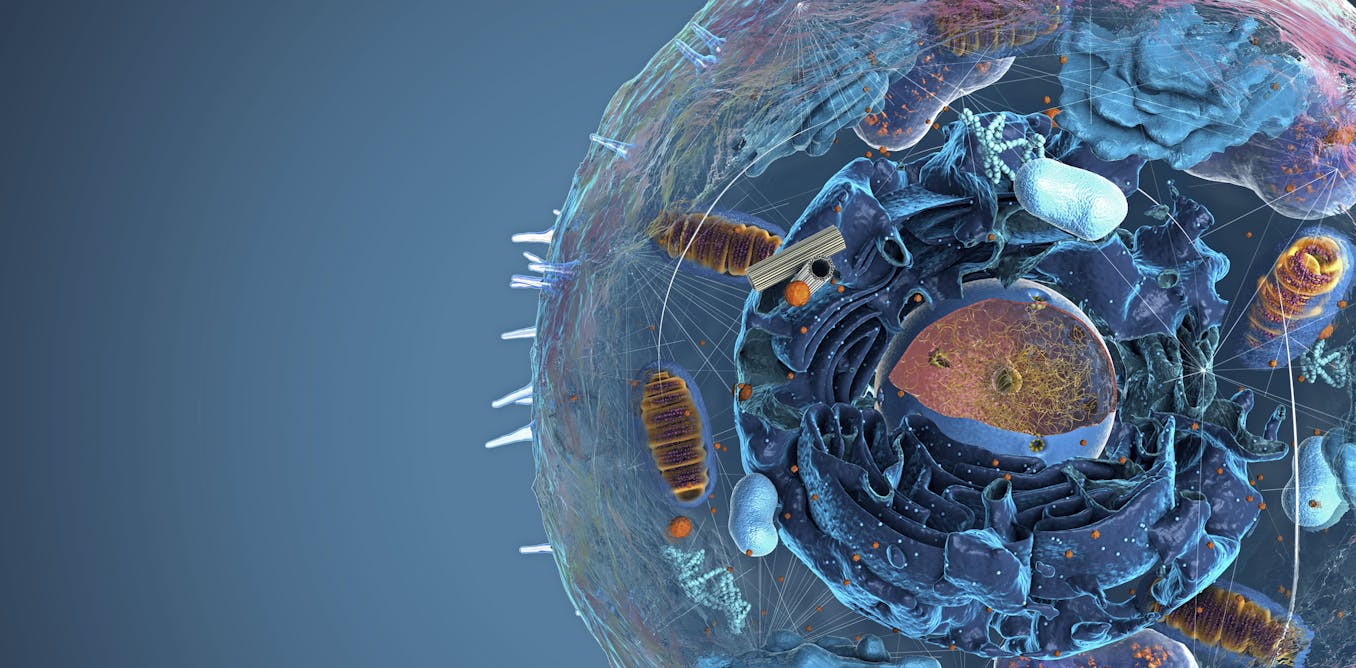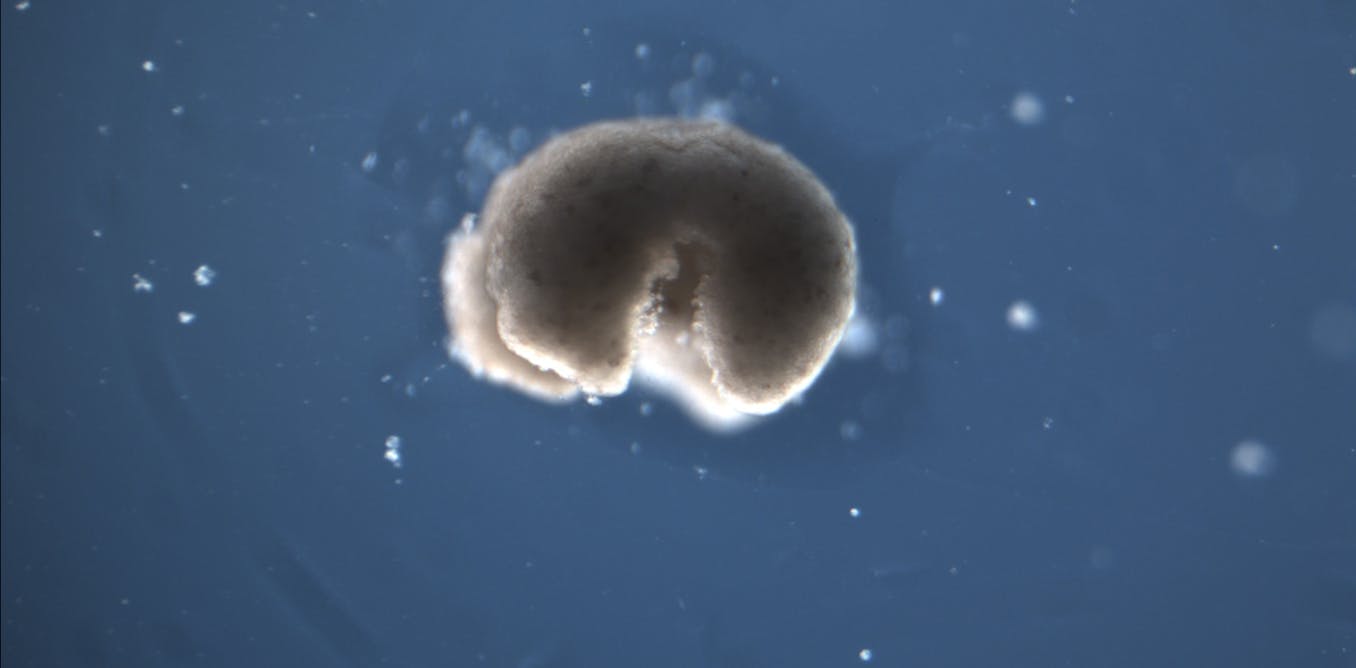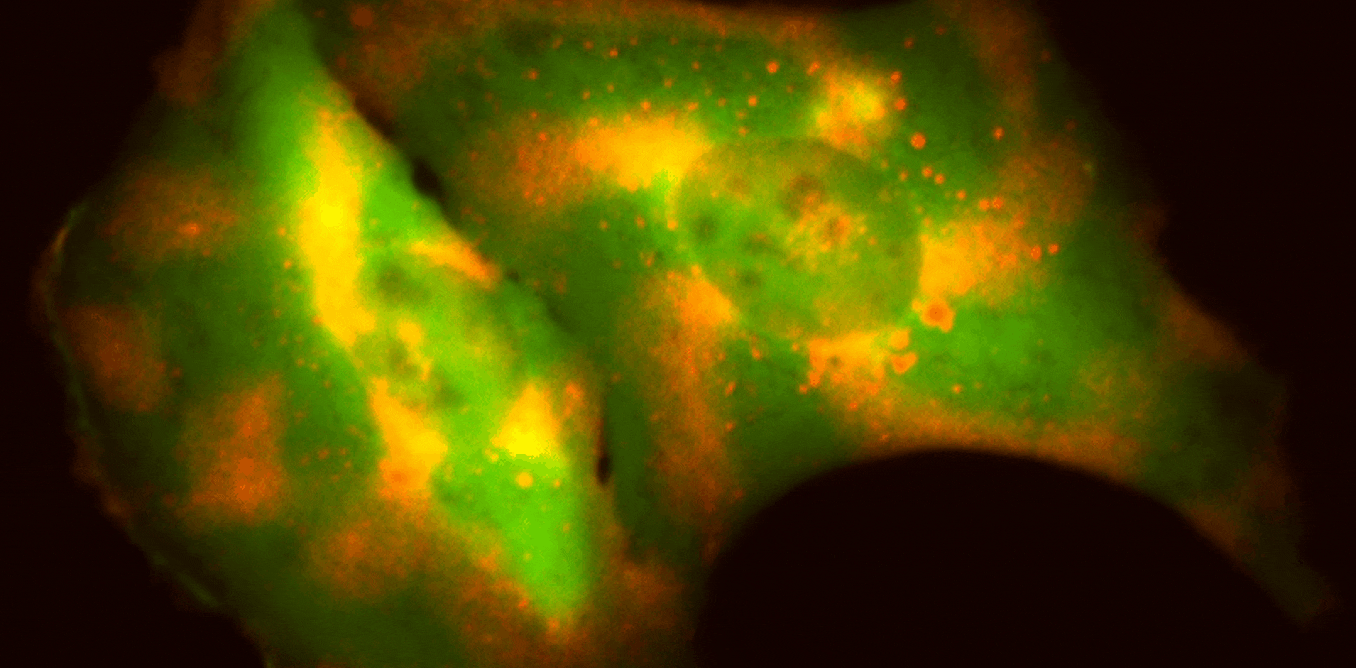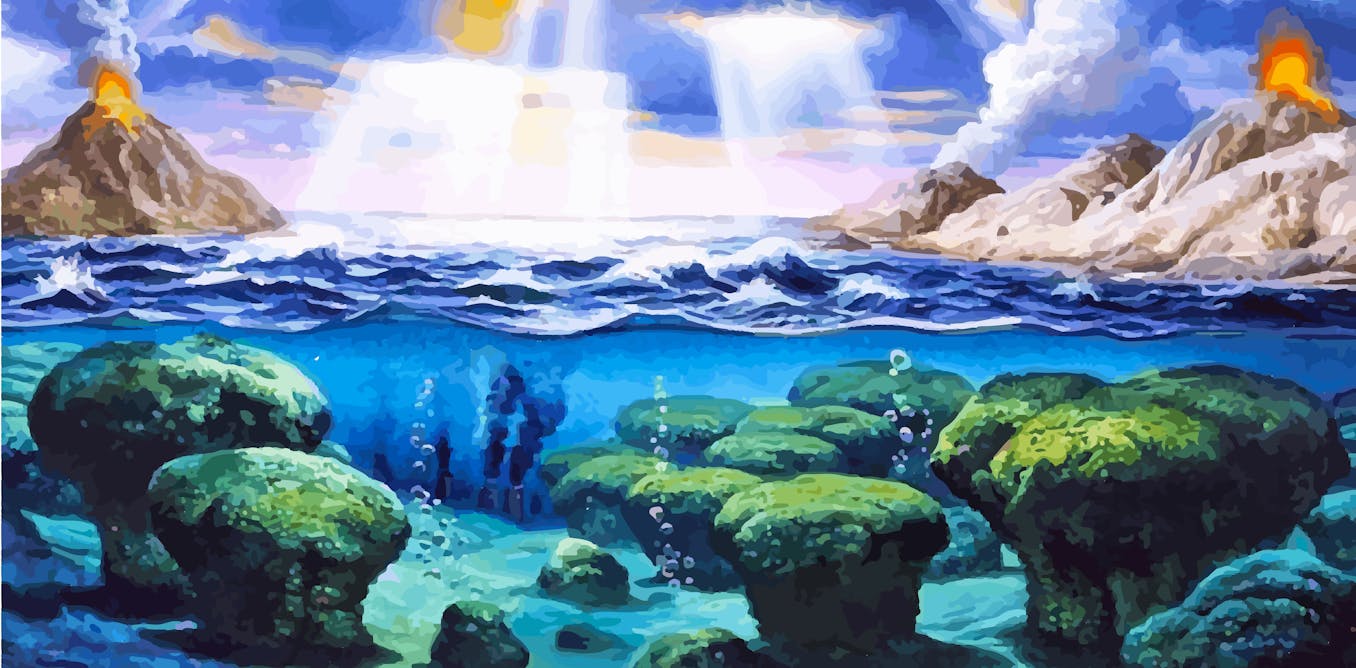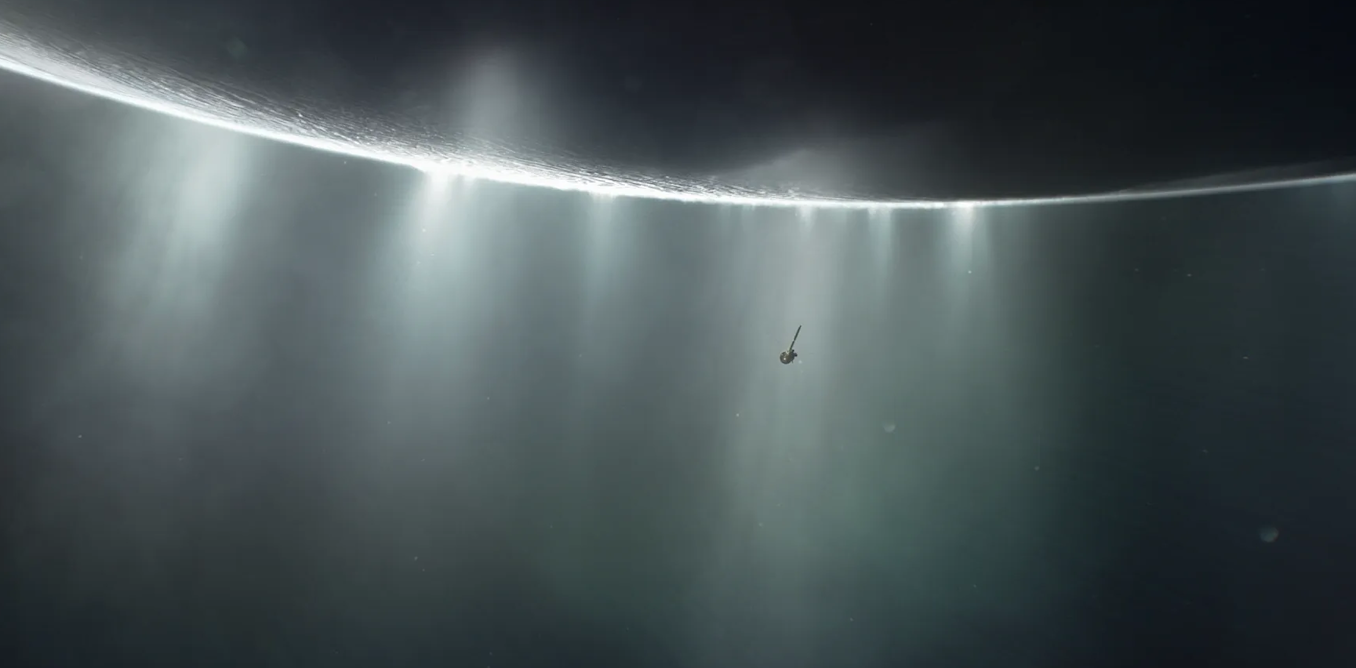Microgravity in space may cause cancer − but on Earth, mimicking weightlessness could help researchers develop treatments
Cells function differently under low gravity conditions. Rather than send lab samples to space, researchers are developing Earth-bound tools to more easily study microgravity’s effects on biology.
Jan. 24, 2025 • ~6 min
Cells have more mini ‘organs’ than researchers thought − unbound by membranes, these rogue organelles challenge biology’s fundamentals
Membraneless organelles, also called biomolecular condensates, are changing how scientists think about protein chemistry, various diseases and even the origin of life.
Nov. 5, 2024 • ~8 min
Rain may have helped form the first cells, kick-starting life as we know it
The earliest cells likely didn’t have membranes to separate and protect their components and chemistry away from a harsh surrounding environment. But they may have made do with rain.
Oct. 15, 2024 • ~12 min
Biobots arise from the cells of dead organisms − pushing the boundaries of life, death and medicine
Given the right conditions, certain types of cells are able to self-assemble into new lifeforms after the organism they were once part of has died.
Sept. 12, 2024 • ~8 min
Engineering cells to broadcast their behavior can help scientists study their inner workings
Researchers can create ‘single-cell radios’ using bacterial proteins to transmit the invisible activities within cells.
May 31, 2024 • ~5 min
Saturn’s ocean moon Enceladus is able to support life − my research team is working out how to detect extraterrestrial cells there
Saturn’s moon Enceladus has geysers shooting tiny grains of ice into space. These grains could hold traces of life − but researchers need the right tools to tell.
April 17, 2024 • ~8 min
/
4



